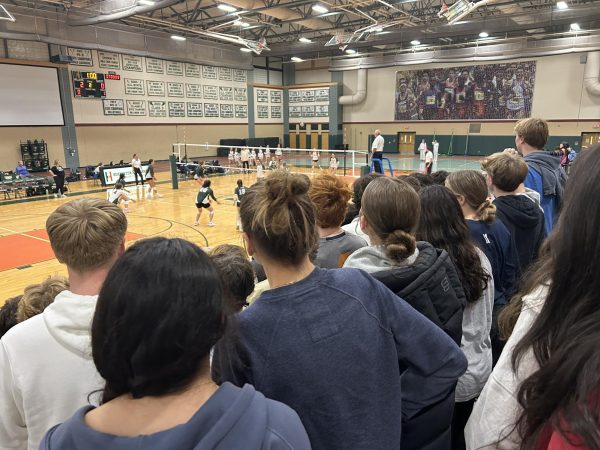Students Prepare for Senior Projects
As the Class of 2018 approaches their final few months at HHS, many seniors asked themselves the same question… Should I do a senior project? In all honesty the answer depends on the student, since everyone has different interests, schedule commitments, and course loads.
Senior projects are an opportunity for students to pursue a hobby or career interest during the spring. After qualified participants found a mentor and submit applications, they began their projects the week after April vacation. During this time, students are excused from all their classes, with exception to AP courses. Seniors must continue attending school during their AP periods in order to prepare for the May AP exams.
Overall, senior projects require notable preparation and dedication. The program takes four weeks in total and participants are expected to write weekly journal entries and prepare final presentations. The students must also dedicate twenty hours per week to the project. However, if the student is enrolled in AP classes, the weekly hour requirement is reduced. This helps make the workload between AP classes/exams and the project more manageable.
There are many different factors that can influence the decision to start a project. For example, if a student is already playing a spring sport or working a part-time job, then committing to a senior project may be more difficult.
Some students may also not be able to easily participate in a senior project while enrolled in multiple AP classes. This is because the workload is very demanding and AP exams require lots of studying. For example, senior Lu Wang decided against participating in the activity due to his heavy course workload.
“I just feel that the senior project wouldn’t work out for me because I am taking so many APs. It would be tough to balance it all,” Wang said.

Students also may not want to participate in senior project because it would prevent them from being in school to see their friends during the final few weeks of the school year.
“I didn’t want to do a senior project because I want to see my friends and classmates. This is the last opportunity for us to spend time together as a class,” senior Alex Sanchez said.
To get the best of both worlds, some seniors opted to do a project from within the school. There are opportunities to shadow teachers or other staff as part of the project. This allows the students to continue seeing their friends during school, while still being excused from classes.
Despite potential disadvantages of doing a senior project, there are also many additional benefits. Senior projects also allow students to think outside the box. There are opportunities to participate in internships or volunteer work, or the senior can design the project around a hobby. The possibilities are endless and students are given lots of freedom on what they can do. Andrew Smith plans on designing a project that applies physics to a real-life scenario.
“I plan on designing and building a trebuchet that can launch a pumpkin across a football field.
 I am interested in potentially pursuing a career in engineering or physics and this would be a cool opportunity to learn more about the subject. My physics teacher Ms. Petruska will be my advisor, which is helpful.”
I am interested in potentially pursuing a career in engineering or physics and this would be a cool opportunity to learn more about the subject. My physics teacher Ms. Petruska will be my advisor, which is helpful.”
One incentive for doing a senior project is that students do not have to take final exams since they are excused from the final four weeks of classes. A senior project is also intriguing because it allows students to learn skills that are not taught in a classroom setting.
“It is a really cool way to explore things you’re interested in and you’re also able to get out of your non-AP classes for the last four weeks, which is a plus,” Smith said.
Overall, many factors can weigh into a student’s decision. For some, a senior project works out well in their schedule and it presents them with a unique opportunity to conclude their high school career with something that genuinely interests them. However, for others, the workload may already be too demanding.





